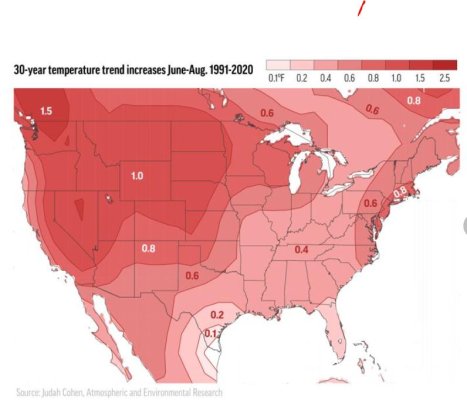REWahoo
Give me a museum and I'll fill it. (Picasso) Give
Lots of news of late about blistering high temperatures, especially out west. Thought this was an interesting article and map from the Associated Press showing average summer temp changes over the past 30 years.
Audrey1, who knew you lived in the "coolest" part of the US?
Summer swelter trend: West gets hotter days, East hot nights
Audrey1, who knew you lived in the "coolest" part of the US?
The West is getting roasted by hotter summer days while the East Coast is getting swamped by hotter and stickier summer nights, an analysis of decades of U.S. summer weather data by The Associated Press shows.
Summer swelter trend: West gets hotter days, East hot nights
Attachments
Last edited:


